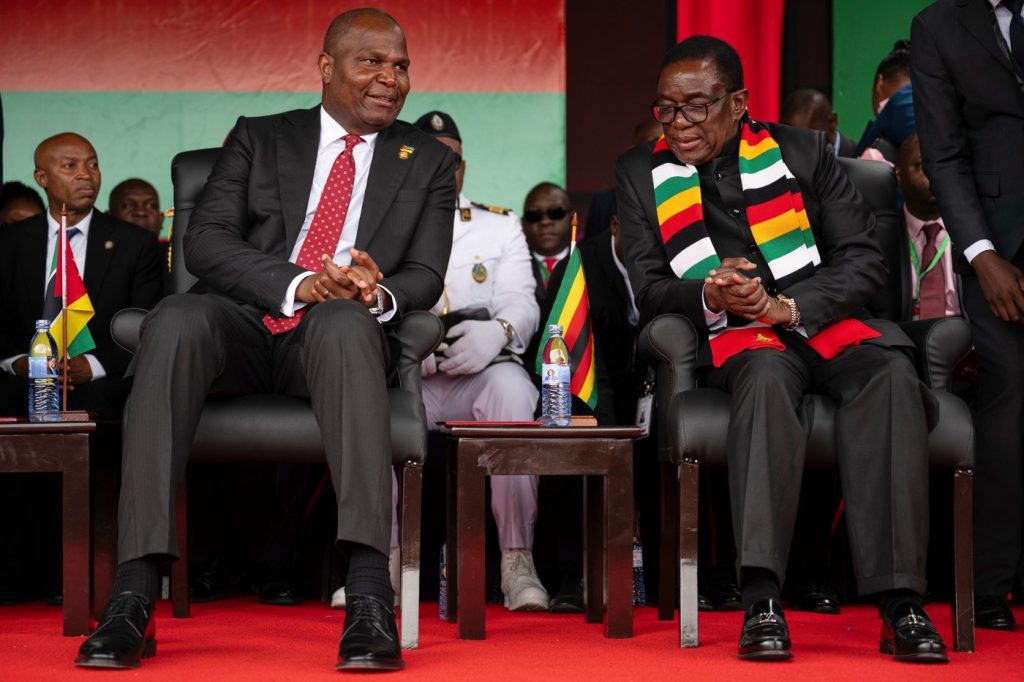HARARE, Zimbabwe (AP) — Zimbabwe's ruling ZANU-PF party announced plans on Saturday to initiate steps for extending President Emmerson Mnangagwa's tenure by two years, a move that could allow the 83-year-old leader to remain in power until 2030. According to Zimbabwe's Constitution, Mnangagwa is set to complete two five-year terms and is scheduled to step down in 2028. The proposed extension would necessitate amending the existing term-limit provisions.
The resolution to pursue this extension was adopted during the party's annual conference held in the eastern city of Mutare. Justice Minister Ziyambi Ziyambi, who also serves as ZANU-PF's legal secretary, stated that the conference directed the government to "initiate the requisite legislative amendments" to facilitate the extension plan. The announcement was met with cheers from hundreds of party delegates, reflecting the party’s long-standing dominance since Zimbabwe attained independence in 1980.
While the ZANU-PF party controls Parliament, legal experts, including political lecturer Lovemore Madhuku, have indicated that altering the term limits may require holding two referendums. Despite previously emphasizing his commitment to constitutionalism and stating he had no intentions of exceeding his mandate, factions loyal to President Mnangagwa have been advocating for a prolongation of his presidency until 2030. This internal divide is also evident among supporters of Vice President Constantino Chiwenga, who opposed the extension. Chiwenga, a key figure who orchestrated the 2017 military coup that led to the downfall of former President Robert Mugabe, has not publicly commented on the term extension proposal.
Supporters of Chiwenga, such as veteran Blessed Geza, have utilized online platforms like YouTube to denounce the campaign for extending Mnangagwa's term, garnering a substantial following among viewers. However, Geza’s calls for protests against the extension have remained largely subdued, likely due to the presence of police officers deployed to maintain order. While Mnangagwa chose not to address the extension proposal in his closing remarks at the conference, the ongoing tensions reveal the complexities within Zimbabwean politics.
This potential change in the constitution is not isolated; similar amendments in other African nations have historically resulted in the prolongation of leaders' tenures. The situation raises questions about the commitment to democratic principles in Zimbabwe, especially given the government's control of Parliament and the potential for significant constitutional amendments without broader public input. As the political landscape continues to evolve, the implications of this proposal could have lasting effects on Zimbabwe's governance and societal stability.











